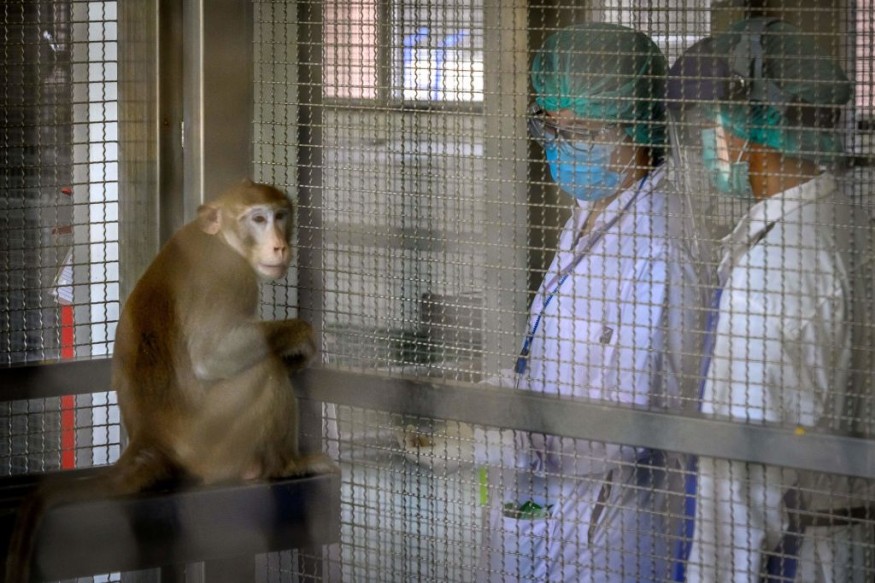Elon Musk's company, which develops brain implants that may help treat a variety of neurological disorders, faces opposition to allegations that the monkeys used in the project have been abused.
Neuralink denied this claim in a statement on Monday, Feb. 14, insisting on its commitment to animal welfare.
The claims on monkeys being abused

In a lengthy complaint filed with the US Department of Agriculture (USDA), the Physicians Committee for Responsible Medicine (PCRM) found that the study caused "extreme distress" in subjects "who suffered brain amputation in substandard experiments and let them die."
PCRM is a non-profit organization that promotes plant-based diets and alternatives to animal testing, as per The Guardian.
Complaints were related to Neuralink's partnership with the University of California, Davis, which ran between 2017 and 2020.
In this partnership, researchers a device "about a quarter the size" was implanted in the skull of a monkey test subject.
According to The Verge, the PCRM's complaint with the U.S. Department of Agriculture (USDA) against Davis at the University of California last week is based on documents made public after a public archives trial.
The document described a partnership that provided approximately $1.4 million to the university between 2017 and 2020.
Researchers tested a "quarter coin size" implant attached to the skull of a test monkey.
The journal post suggested that with enough choices in an internal environment, animals may have "freedom of choice identical as they would have in their natural world" and prefer to participate in trials the manner a human volunteer would.
"Some individuals need to contribute to medical analysis for numerous reasons. Some do not. Why will this not be the same for animals?" it asked.
As per The Verge, Neuralink's brain-computer interface (or BCI) implant is meant to let monkeys and in theory, human subjects control electronic systems with neural activity.
While Musk has floated far-future prospects of mass-market implants, Neuralink is presently following in the footsteps of alternative research groups that have tested BCI's potential to let people with paralysis type words or manipulate robotic arms.
The corporate demonstrated an early iteration of its research last year when it released a video of a monkey showing to play pong via its implant.
Surgical complications accumulated by the monkeys
According to BBC News, in rebutting the claims, Neuralink admitted that the two animals were killed "at the intended end dates for important histological data collection."
Six other monkeys were euthanized on the medical advice of the UC Davis veterinary team.
As per The Guardian, PCRM stated in the complaint that Neuralink used a substance called "BioGlue" that destroys parts of the monkey's brain.
It described animals with significant psychological consequences from the experiment, including anxiety, vomiting, loss of appetite, hair loss, and self-harm, including releasing one's finger.
They added via BBC News, "While facilities and care at UC Davis meet and continue to meet federal standards, we are keen to improve those standards as we move animals to our in-house facility."
Related article: New Study Revolutionizes Brain Implant Concept for Sight Restoration
© 2025 NatureWorldNews.com All rights reserved. Do not reproduce without permission.





